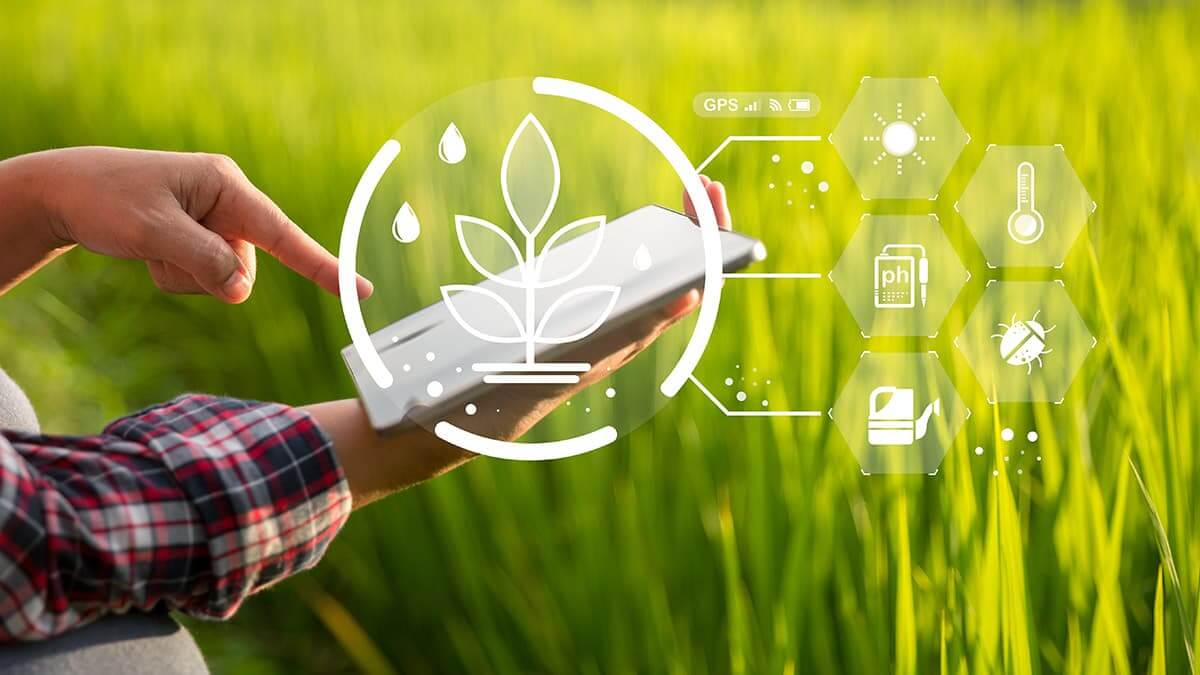Agritech is revolutionizing food production systems, paving the way for a more sustainable future for global agriculture. By integrating innovative technologies into traditional farming practices, agritech addresses critical challenges such as increasing food demand, resource scarcity, and climate change impacts.
Precision Farming for Optimized Resource Use
Precision farming, a cornerstone of agritech, utilizes data-driven insights to optimize resource allocation and improve crop yields. Technologies like GPS-guided machinery, drones, and sensors collect real-time data on soil conditions, weather patterns, and plant health. This information enables farmers to make informed decisions regarding irrigation, fertilization, and pest control, minimizing waste and maximizing efficiency. Variable rate technology (VRT) allows for the precise application of inputs based on specific field conditions, reducing environmental impact and promoting sustainable resource management.
Vertical Farming and Controlled Environment Agriculture
Vertical farming and other forms of controlled environment agriculture (CEA) are emerging as game-changers in urban and peri-urban areas. By growing crops in stacked layers or enclosed structures, these systems optimize space utilization and resource efficiency. CEA enables year-round crop production, regardless of external weather conditions, ensuring a stable and reliable food supply. These systems often incorporate hydroponics or aeroponics, which minimize water usage and eliminate the need for soil. Furthermore, CEA reduces the risk of pests and diseases, minimizing the need for pesticides and herbicides.
Biotechnology and Crop Improvement
Biotechnology plays a crucial role in developing crops that are more resilient, nutritious, and productive. Genetically modified (GM) crops, engineered for traits such as pest resistance and drought tolerance, can significantly reduce crop losses and input requirements. Genome editing technologies like CRISPR offer even more precise and efficient ways to improve crop characteristics. Biofertilizers and biopesticides, derived from natural sources, provide environmentally friendly alternatives to synthetic chemicals, promoting soil health and biodiversity.
AI and Automation for Enhanced Efficiency
Artificial intelligence (AI) and automation are transforming various aspects of agriculture, from planting and harvesting to monitoring and data analysis. AI-powered image recognition systems can identify plant diseases and pests early on, enabling timely intervention and preventing widespread damage. Autonomous robots and drones can perform tasks such as planting, weeding, and harvesting with greater speed and precision than traditional methods, reducing labor costs and improving efficiency. AI algorithms can also analyze vast amounts of data to optimize crop management practices and predict future yields.
Supply Chain Optimization and Traceability
Agritech solutions are also enhancing supply chain efficiency and traceability, ensuring food safety and reducing waste. Blockchain technology enables transparent and secure tracking of food products from farm to table, providing consumers with valuable information about the origin, quality, and safety of their food. IoT-enabled sensors monitor storage conditions and transportation logistics, minimizing spoilage and ensuring that food reaches consumers in optimal condition. AI-powered platforms can optimize supply chain operations, reducing transportation costs and minimizing food waste.
Challenges and Opportunities
While agritech offers immense potential, several challenges need to be addressed to ensure its widespread adoption. These include the high initial investment costs, the need for skilled labor to operate and maintain advanced technologies, and concerns about data privacy and security. However, as technology costs decrease and awareness of the benefits of agritech increases, adoption rates are expected to rise. Government policies and investments in research and development can play a crucial role in accelerating the adoption of agritech and promoting sustainable agricultural practices. Collaboration between farmers, researchers, policymakers, and technology providers is essential to harness the full potential of agritech and create a more sustainable and resilient food system for the future.















